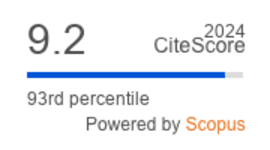Epigenetic Drug Interventions in Breast Cancer: A Narrative Review of Current Research and Future Directions
DOI:
https://doi.org/10.36877/pmmb.a0000448Abstract
Breast cancer is a life-threatening disease known for its extensive molecular heterogeneity. The study of the breast cancer epigenome has revealed potential avenues for improving breast cancer treatment risk stratification, early detection, and treatment. With renewed interest in epigenetic-modifying pharmaceutical agents, namely DNA methyltransferase inhibitors (DNMTi), histone deacetylase inhibitors (HDACi), bromodomain and extra-terminal inhibitors (BETi), and enhancer of zeste homolog 2 inhibitors (EZH2i), there have been extensive preclinical and clinical studies to evaluate the safety and efficacy of these agents as potential treatments for breast cancer. In this review, we summarise and present the preclinical and clinical evidence for epigenetic drugs in treating breast cancer. We review the challenges associated with the translation of these findings into improved patient outcomes, namely the optimisation of dosage and treatment regimens, and the emergence of resistance. These challenges have been widely recognised in the field and are of utmost importance for the successful implementation of personalised medicine. While there is strong evidence that epigenetic alterations, consisting of changes in DNA methylation, histone modifications, and non-coding RNAs, play a crucial role in breast cancer initiation and development, additional research is warranted to elucidate the safety profile of long-term interventions involving epigenetic drugs and to validate the role of epigenetic markers in disease diagnosis, prognosis, and personalised treatment.
Downloads
Published
How to Cite
Issue
Section
License
Copyright (c) 2024 Sarah Bibi Mungly, Evelyn Priya Peter, Ling-Wei Hii, Chun-Wai Mai, Felicia Fei-Lei Chung

This work is licensed under a Creative Commons Attribution-NonCommercial 4.0 International License.
Author(s) shall retain the copyright of their work and grant the Journal/Publisher right for the first publication with the work simultaneously licensed under:
Creative Commons Attribution-NonCommercial 4.0 International (CC BY-NC 4.0). This license allows for the copying, distribution and transmission of the work, provided the correct attribution of the original creator is stated. Adaptation and remixing are also permitted.

This broad license intends to facilitate free access to, as well as the unrestricted reuse of, original works of all types for non-commercial purposes.
The author(s) permits HH Publisher to publish this article that has not been submitted elsewhere.



.png)

.jpg)
